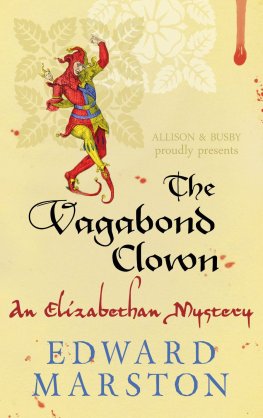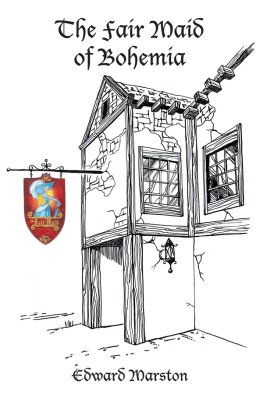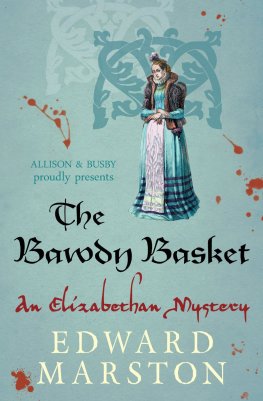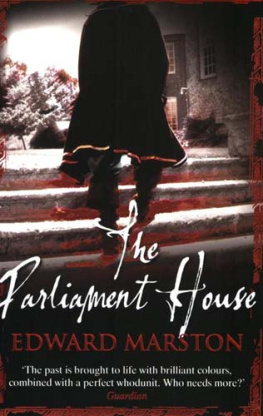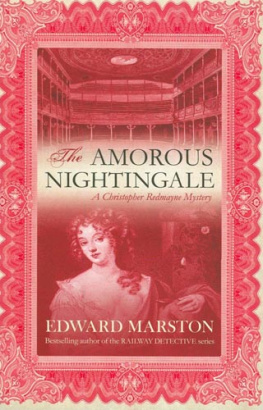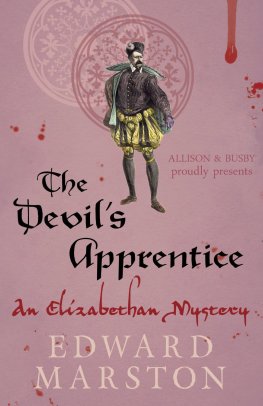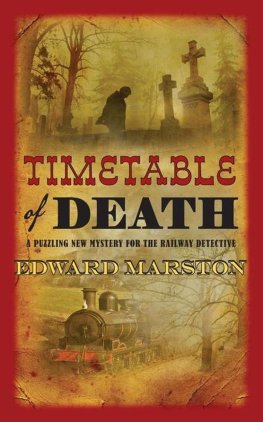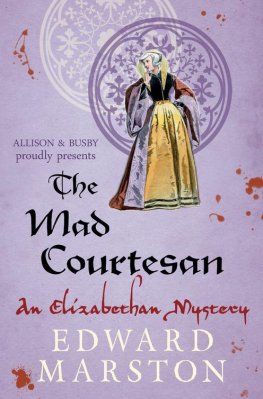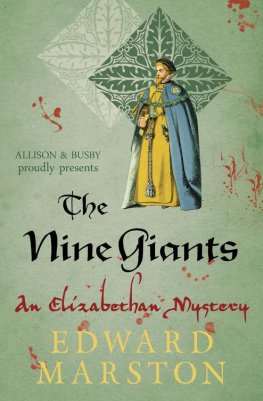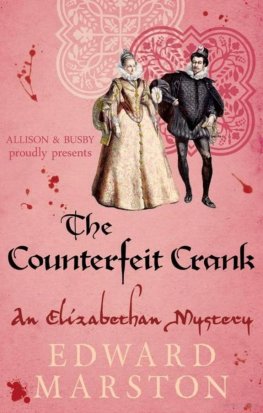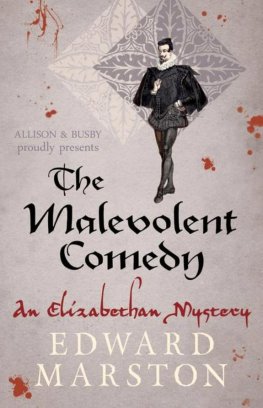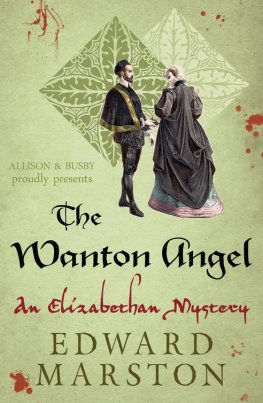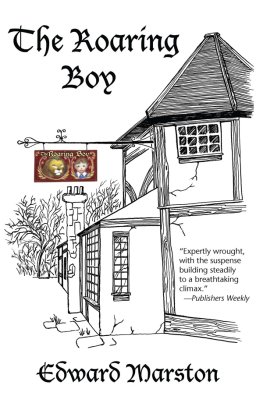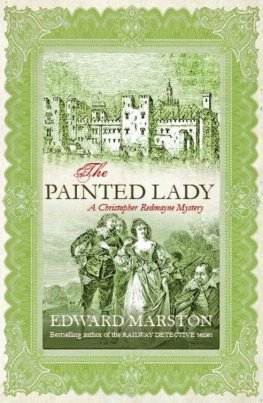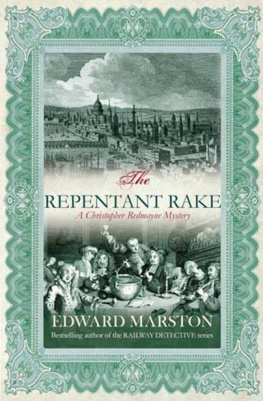Edward Marston - The Vagabond Clown
Here you can read online Edward Marston - The Vagabond Clown full text of the book (entire story) in english for free. Download pdf and epub, get meaning, cover and reviews about this ebook. genre: Detective and thriller. Description of the work, (preface) as well as reviews are available. Best literature library LitArk.com created for fans of good reading and offers a wide selection of genres:
Romance novel
Science fiction
Adventure
Detective
Science
History
Home and family
Prose
Art
Politics
Computer
Non-fiction
Religion
Business
Children
Humor
Choose a favorite category and find really read worthwhile books. Enjoy immersion in the world of imagination, feel the emotions of the characters or learn something new for yourself, make an fascinating discovery.
- Book:The Vagabond Clown
- Author:
- Genre:
- Rating:5 / 5
- Favourites:Add to favourites
- Your mark:
- 100
- 1
- 2
- 3
- 4
- 5
The Vagabond Clown: summary, description and annotation
We offer to read an annotation, description, summary or preface (depends on what the author of the book "The Vagabond Clown" wrote himself). If you haven't found the necessary information about the book — write in the comments, we will try to find it.
The Vagabond Clown — read online for free the complete book (whole text) full work
Below is the text of the book, divided by pages. System saving the place of the last page read, allows you to conveniently read the book "The Vagabond Clown" online for free, without having to search again every time where you left off. Put a bookmark, and you can go to the page where you finished reading at any time.
Font size:
Interval:
Bookmark:
Edward Marston
The Vagabond Clown
Chapter One
The trouble came when he least expected it. Nicholas Bracewell was, for once, caught completely off guard. Until that moment, the performance had been an unqualified success. A Trick To Catch A Chaste Lady was an ideal choice for a hot afternoon in the yard of the Queens Head in Gracechurch Street and the spectators were highly appreciative. What was on offer was a riotous comedy that was played with such skill that it kept the large audience in a state of almost continuous hilarity. Waves of laughter rolled ceaselessly across the yard. In the role of a bumbling suitor, Lackwit, who fails time and again to win the hand of his beloved, Lawrence Firethorn led Westfields Men superbly, setting a standard at which the others could aim, if only to fall short. The one actor who rivalled his comic genius was Barnaby Gill, the acknowledged clown of the company, a man whose facial contortions were a delight and whose sprightly jigs were irresistibly funny. Gill was in the middle of one of his famous dances when the shadow of disaster fell across the afternoon.
Why do they laugh so, Nick? complained Firethorn, who had just quit the stage and was standing beside the book holder. These are stale antics. Barnabys jig has as much novelty as the death of Julius Caesar.
Hes a born clown, said Nicholas Bracewell admiringly, glancing up from his prompt book to watch Gill at work. He plays upon his audience as upon a pipe.
And produces dull music.
They do not think so.
Firethorn inflated his chest. I am the true clown, he boasted. My touch is altogether lighter than Barnabys. I play upon playgoers as upon a church organ.
Yes, said Nicholas with a smile, and produce some very irreverent chords.
Before he could reply, Firethorn was distracted by a huge roar of laughter from the inn yard. Envy surged through him at once. Annoyed that Gill was getting such a wonderful response onstage, he turned to look at his capering colleague. But it was not the comic jig that was provoking the explosion of joy. Gill, in fact, was standing quite still. Two young men had suddenly leapt up on to the makeshift stage from the audience and were grappling with each other. Assuming that the fight was part of the play, the spectators urged them on, shaking with even more mirth when Gill, outraged that his dance had been interrupted, made the mistake of trying to pull the combatants apart, only to be set on by both of them. The hapless clown was pushed, punched, slapped, tripped up, kicked hard in the ribs then thrown unceremoniously from the stage.
Amused at first, the standees at the front of the pit lost their sense of humour when the flailing arms and legs of Barnaby Gill landed among them. Items of furniture soon followed as the two interlopers began to hurl various properties from the stage. A chair hit one man in the face. A heavy stool knocked another spectator senseless. Flung into the air, a wooden table caused even more damage when it landed simultaneously on three people. This was no trick to catch a chaste lady, still less a device to entertain the onlookers. It was a deliberate attempt to halt the play in its tracks. Protests were loud and angry. In an instant, the atmosphere in the yard was transformed.
Nicholas was the first to react, discarding his book to make an unscheduled appearance on stage and grab one of the miscreants in order to march him off. Firethorn came charging out to deal with the other young man but the latter jumped into the crowd and started to cudgel everyone within reach. A brawl developed immediately and the whole yard was soon involved. Stirred into action, drunken apprentices clambered onto the stage and tried to release the captive from Nicholass hands. Other members of the cast came streaming out to assist their book holder, only to be ambushed by a second group of apprentices who had been roused to join in the melee. Violence was lifted to a new and more dangerous level. The noise was deafening. Above the roars of injured parties rose the screams of women and the yells of frightened men. There was a mad dash for the exits, producing such congestion that people began to buffet each other indiscriminately.
Nor was there any safety in the galleries. Viewing the disorder from above, those who had paid extra for a seat and a cushion were forced to duck and dodge as missiles were aimed at them from below. Half-eaten apples scored direct hits. Sticks and stones seemed to come from nowhere. One man scooped up fresh horse manure from the stables and flung it at the gallants and their ladies in the lower gallery. Panic reached the level of hysteria as spectators fought their way to the steps. Private battles broke out on every staircase. All trace of courtesy vanished. Rich apparel was badly torn in the commotion, wounds were readily inflicted. Shrieks, curses, threats and cries for help blended into a single ear-splitting sound. Chaos had come to the Queens Head. Its morose landlord, Alexander Marwood, the bane of the theatre troupe, viewed the scene from the uncertain safety of a window, shouting himself hoarse and gesticulating wildly as the fighting intensified.
Nicholas struggled valiantly against unequal odds. Forced to let go of one man, he beat off three others who tried to overpower him then used his strength to dislodge an attacker, clinging unwisely to Firethorns back. The actor was already wrestling with two other invaders of their stage before banging their heads together and sending them reeling. Nicholas looked around in despair. The play had been comprehensively ruined. Properties had been tossed into the crowd and the scenery had been smashed to pieces. Barnaby Gill had disappeared under the feet of the fleeing public. It was a black day for Westfields Men. They came out to support their fellows in the fight but only added to the general tumult. Dick Honeydew, the youngest and most talented of the companys apprentices, still in his costume, abandoned all pretence of being the beautiful Helen, object of Lackwits wooing, and hurled himself into the fray. It was a grave error of judgement. Within seconds, his wig was snatched from his head, his dress was torn from his back and he was shouldered roughly off the stage.
Honeydews cry went unheard in the turmoil but Nicholas had seen the fate of his young friend. Leaping from the stage, he went to his aid, lifting the boy to his feet with one hand while using the other to brush away a leering youth who was trying to molest the plays heroine. The book holder carried Honeydew quickly back to the tiring-house.
Stay here, Dick! he ordered. This is not your battle.
Ill do my share, said Honeydew, raising a puny arm. Westfields Men ever stick together. We must all protect our property.
Its beyond redemption. My job is to save our fellows from serious harm. He indicated the cowering figure in the corner of the room. You stay here and comfort George. He needs your succour.
Oh, I do, I do, wailed George Dart.
Dart was the assistant stagekeeper, a small, slight, timorous creature who all too often took on the role of the companys scapegoat. Though he had many sterling qualities, bravery was not among them. While others had rushed out to do battle, Dart shrunk back into the tiring-house with his hands over his ears. Honeydew took pity on him and put a consoling arm around the diminutive figure. Nicholas felt able to return to the battlefield. When he went out on stage, he was relieved to see that it had now been reclaimed by the actors. With a concerted effort, they had driven all the interlopers off their precious boards and were patrolling them to make sure that nobody else trespassed on their territory. Firethorn stood in their midst, bellowing at the audience to calm down but only succeeding in driving them into an even greater frenzy.
Font size:
Interval:
Bookmark:
Similar books «The Vagabond Clown»
Look at similar books to The Vagabond Clown. We have selected literature similar in name and meaning in the hope of providing readers with more options to find new, interesting, not yet read works.
Discussion, reviews of the book The Vagabond Clown and just readers' own opinions. Leave your comments, write what you think about the work, its meaning or the main characters. Specify what exactly you liked and what you didn't like, and why you think so.

